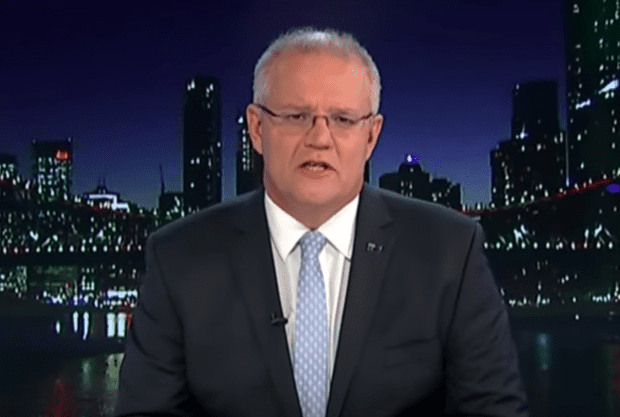Shock: Conservatives Win Australia

All week I’ve been hearing from Australians — conservative voters — that the Australian Labor Party (ALP) was going to win today’s national election. Even tonight at my speech in Sydney, voters were downcast about the expected results. And then we all went home and turned on the TV, and learned that the conservative Coalition incumbents led by PM Scott Morrison had pulled off an upset. (N.B., the Liberal Party is the conservative party in Australia). Read this report from The Australian:
The Coalition’s bombshell triumph comes after repeated polls placed the ALP ahead of the Morrison Government, and the Prime Minister’s demise appeared assured.
Swings to the Coalition in Queensland turned the election on its head as early figures suggested the Government could hold on.
Labor scrutineers told news.com.au older voters have punished the party for its higher-taxing agenda. States where the economy is not thriving – such as Queensland, WA and country areas – have backed the Liberals’ agenda focused on the economy and jobs.
“A bold agenda is now dead forever in Australia,” a Labor scrutineer says as it became clear the election was turning against [Labor leader Bill] Shorten.
As the votes came in confidence began to grown among Liberal supporters. At the official Liberal Party function in Sydney exuberant young Liberal supporters were heard chanting that the Liberals were “an election winning machine”.
“Labor used to be party for the workers, now it’s a party for people who don’t work,” one said.
Great line.
It will be interesting to see if the social conservative/religious vote will have been decisive, given the controversy this week over Israel Folau, the Aussie rugby player sacked by the league for posting to Instagram a Bible quote that offended gays. A few days back, Bill Shorten, the Labor standard bearer, attacked opponent Scott Morrison for not condemning Folau unambiguously. And on Friday, the rugby league formally ended Folau’s career, causing a lot of anger among Australians who believe he was robbed of his livelihood because of his Christian belief.
There could be no doubt that a Labor victory would have been bad for religious liberty in this country. Alex Deagon, a law professor, wrote in The Age this week:
Rugby Australia’s verdict on its punishment for Israel Folau, due on Friday, will highlight broader religious freedom implications – and these may have an impact on the federal election this weekend. Folau’s case will likely end up in court, but this saga goes far beyond the career of an individual player and his attempt to assert his right to call for sinners to repent.
Most significantly, Labor has pledged to remove the religious exemptions in the Sex Discrimination Act, which allow religious schools to directly “discriminate” against staff and students in the process of upholding a religious ethos.
Senior Labor figures have attempted to reassure religious schools that they will still be able to maintain their ethos through the indirect discrimination exemptions. The religious schools sector remains sceptical – for good reason.
More:
Simply removing the direct discrimination exemptions fails to adequately protect the religious freedom of schools. First, schools will only be able to generally regulate student conduct if it is “reasonable in the circumstances”. However, this gives secular courts effective theological power to determine if a particular school policy based in religion is reasonable.
This is an unwise intrusion of the state in the church – and it is worth remembering that the idea of “separation of church and state” was originally designed to protect the church from the state.
I hope that in-depth election analysis reveals that the nasty anti-religious views of Labor and progressives in general played a measurable role in the left’s shocking defeat in Australia.
Subscribe for as little as $5/mo to start commenting on Rod’s blog.